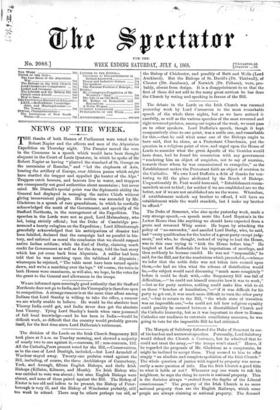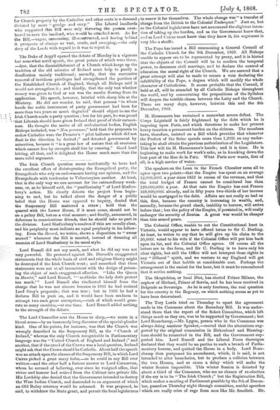The Marquis of Salisbury followed the Duke of Somerset in
one of his hardest and narrowest speeches. Personally, Lord Salisbury would defend the Church a l'ouerance, but he admitted that he could not trust the army,—" the troops won't stand." Hence, if he regarded the proposals of Mr. Gladstone as a compromise, he might be inclined to accept them. They seemed to him to offer simply "an absolute and complete spoliation of the Irish Church." The whole question of justice with regard to property was neces- sarily a mere question of title. Has the Irish Church a good title to what it holds or not ? 1Vhenever any one wants to rob- his neighbour, he says the thing he covets is national property. This is the doctrine always "evolved from the depths of the Liberal consciousness." The property of the Irish Church is no more national property than are the English Railways, which some people are always claiming as national property. The demand
for Church property by the Catholics and other sects is a demand dictated by mere "grudge and envy." The Liberal landlords who supported dais Bill were only throning the parson over- board to save the landlord,, who would be attacked next. As for the Bill,—vague, unmeaning, ill-constructed, and having behind it prospects of change so vast, crude, and sweeping,—the only duty of the Loids with regard to it was to reject it.































